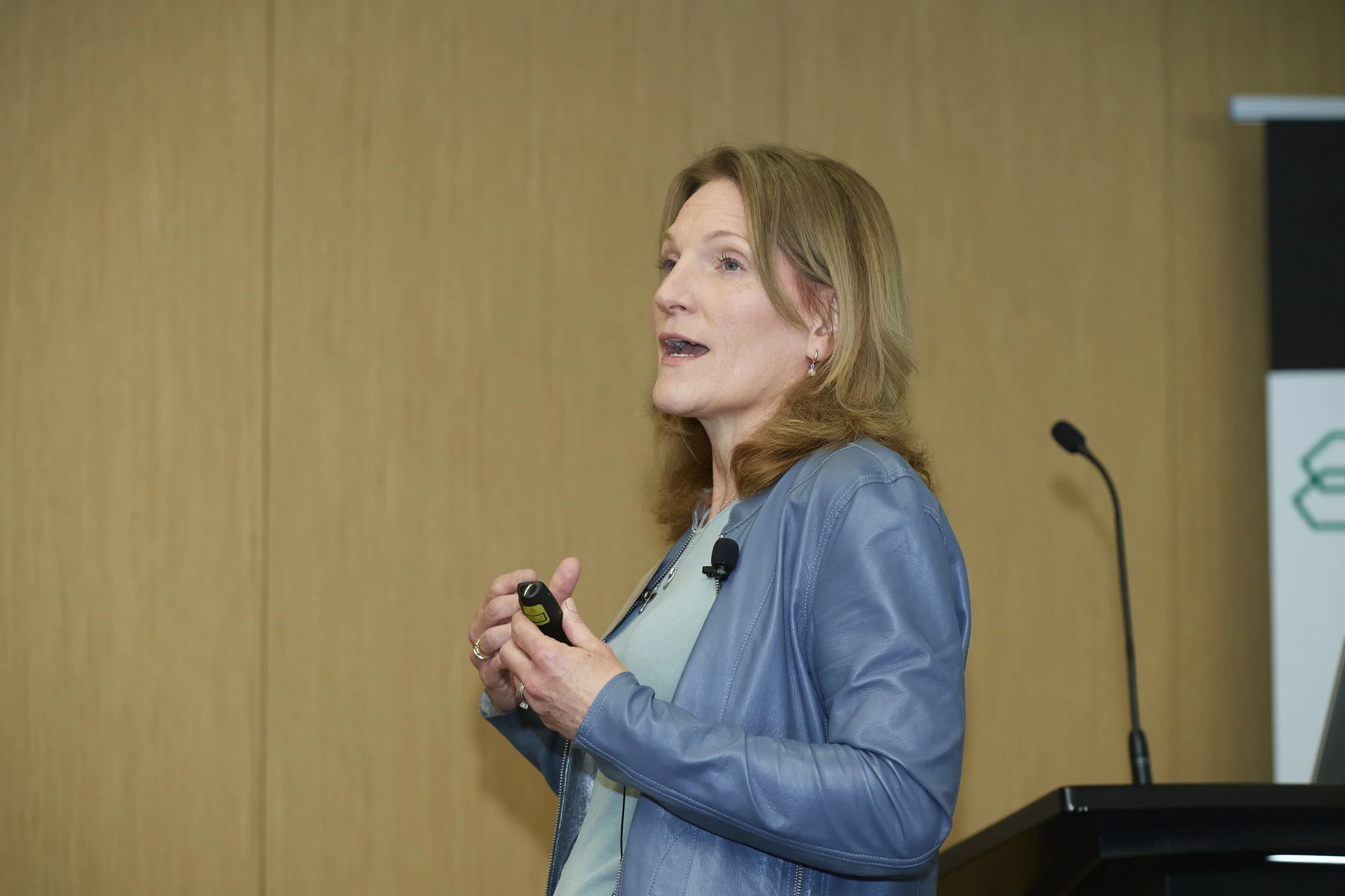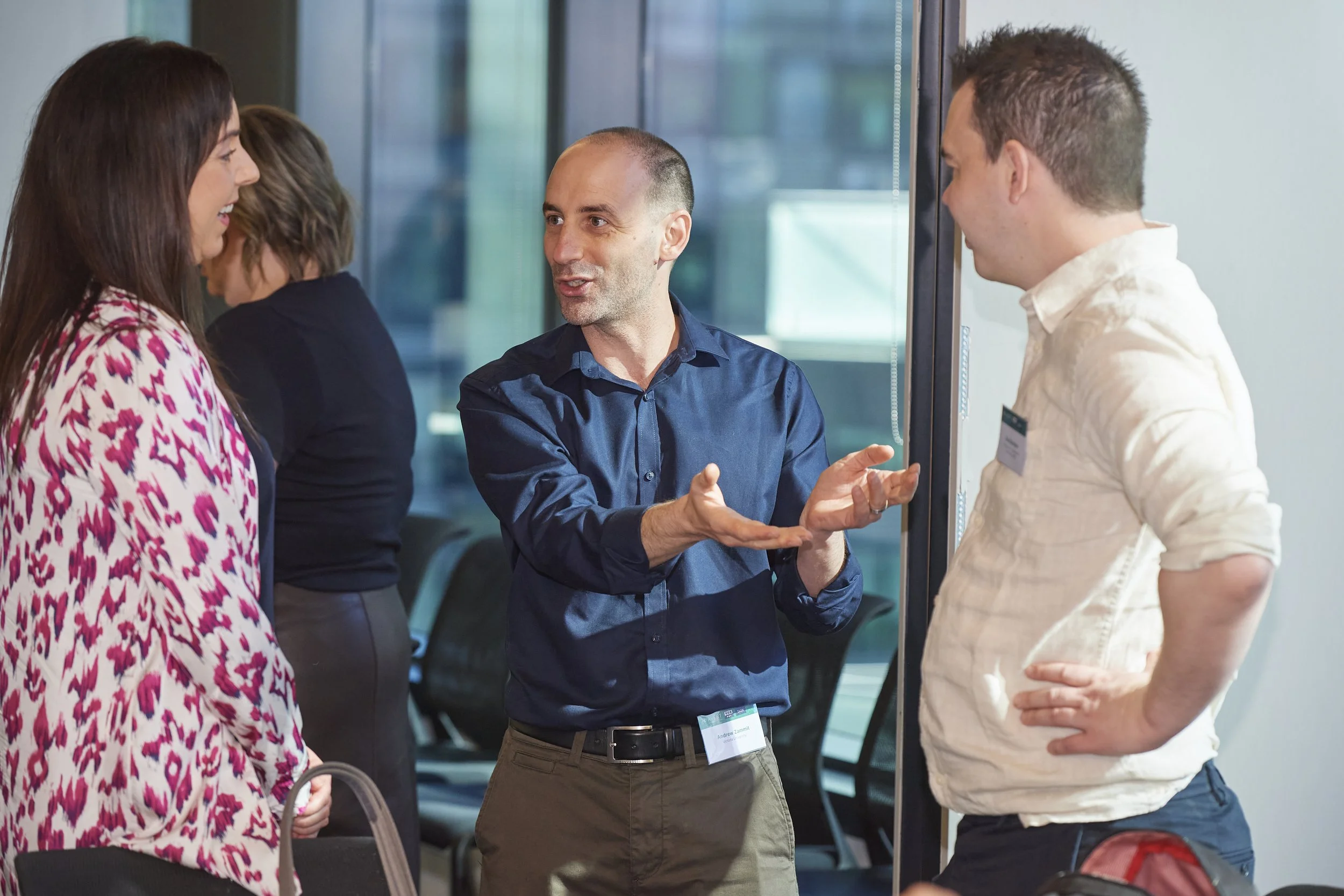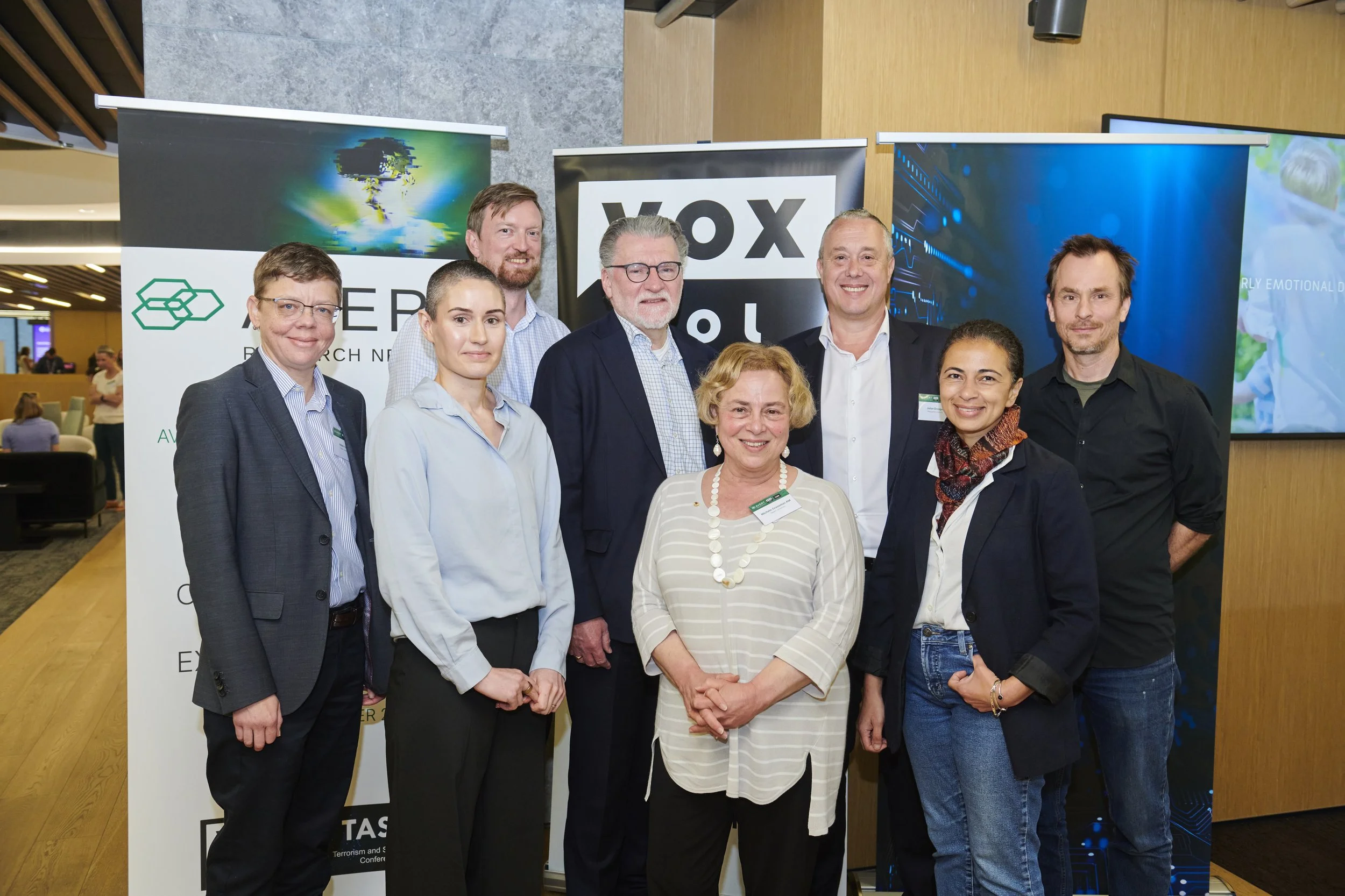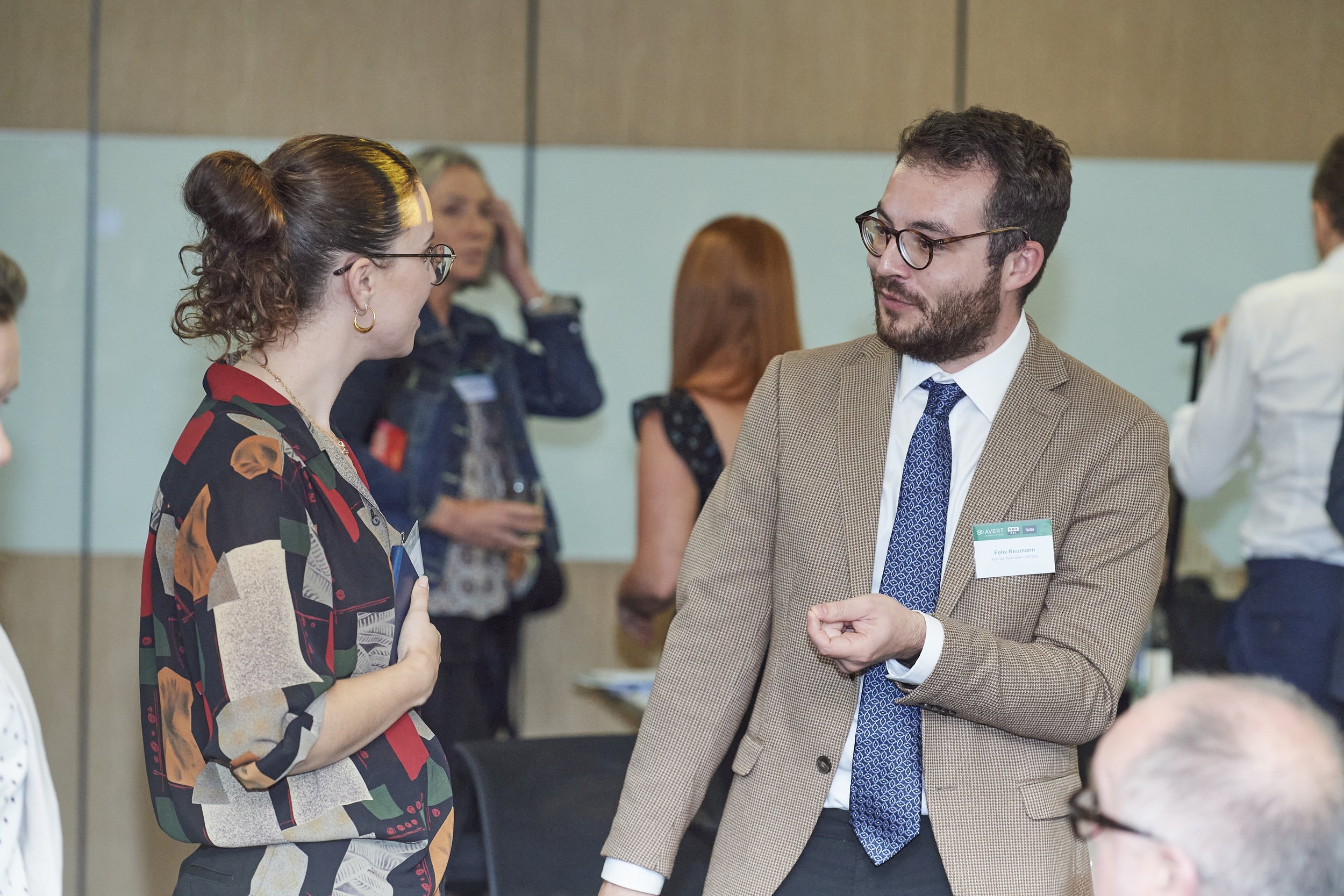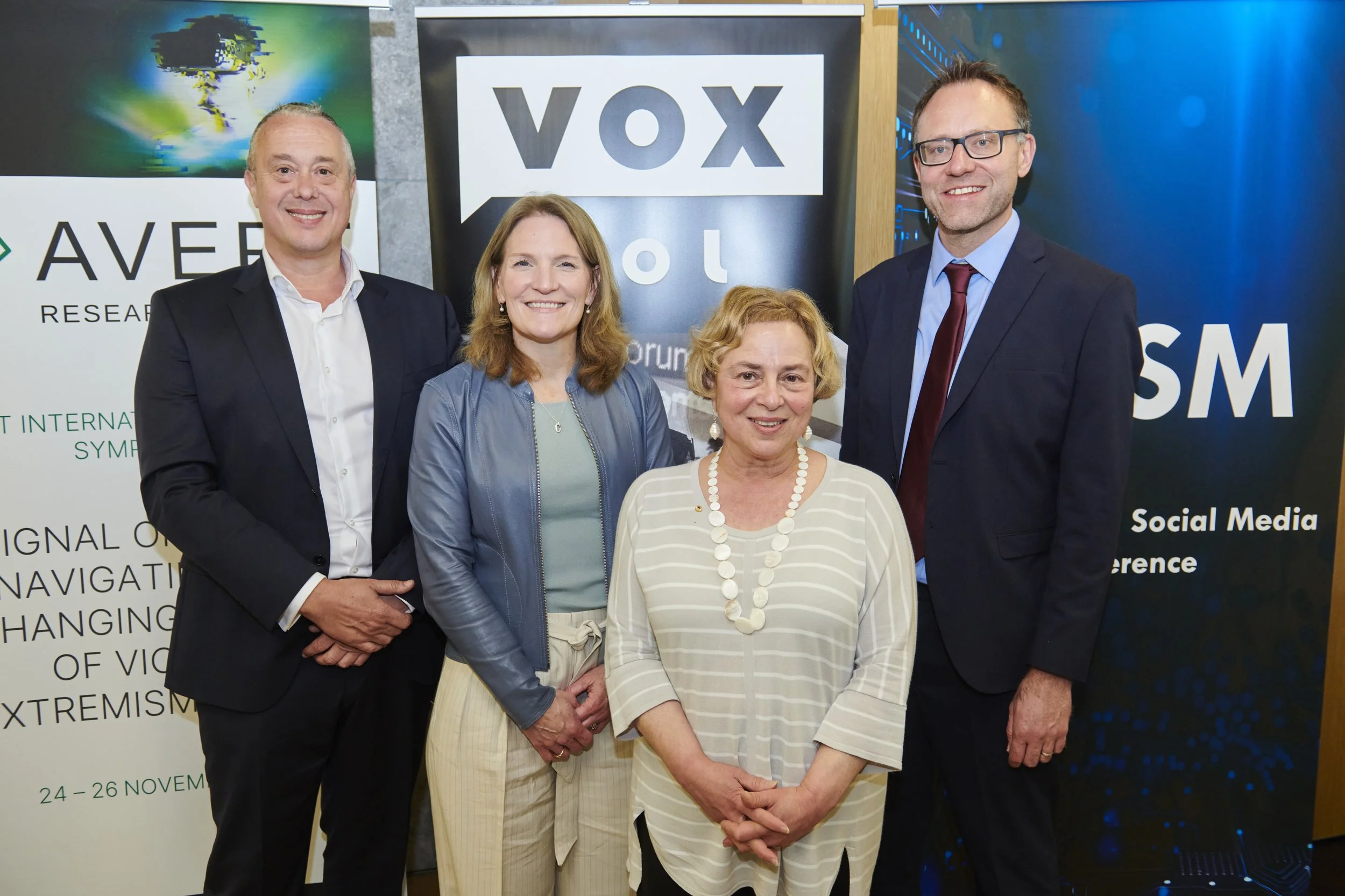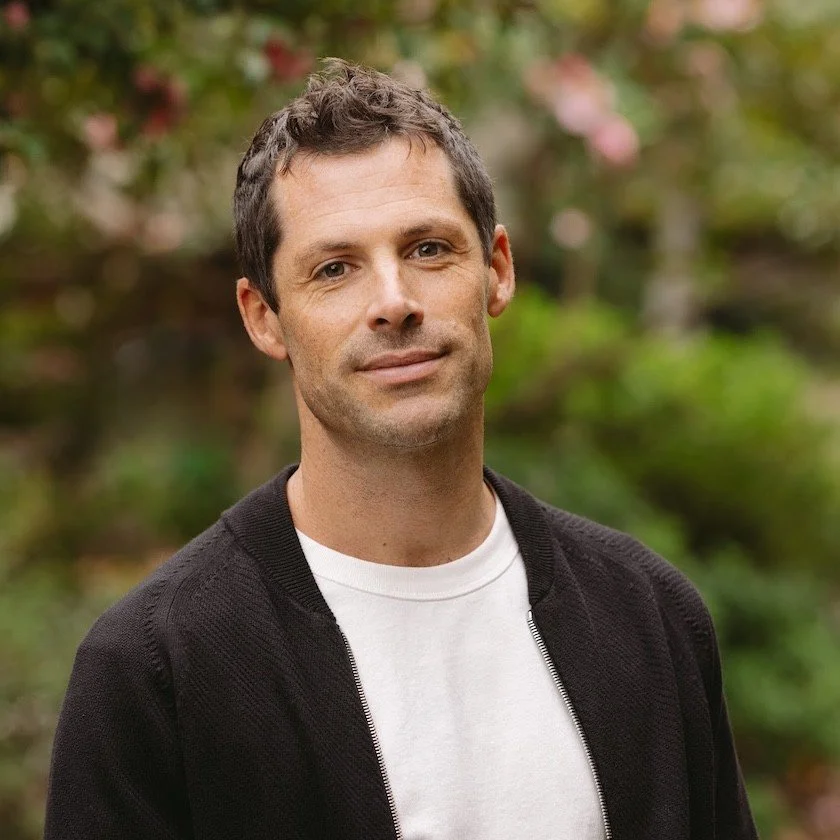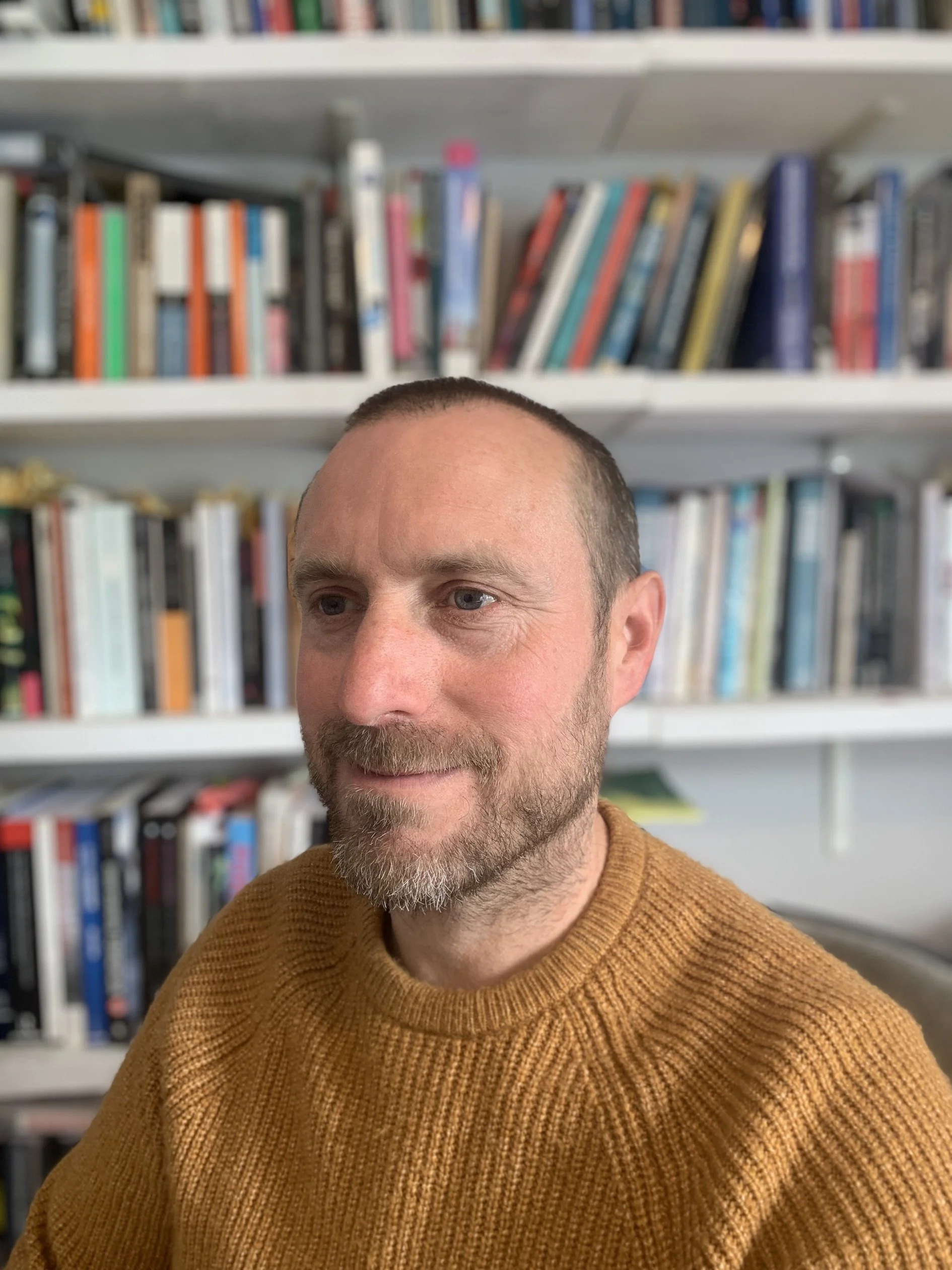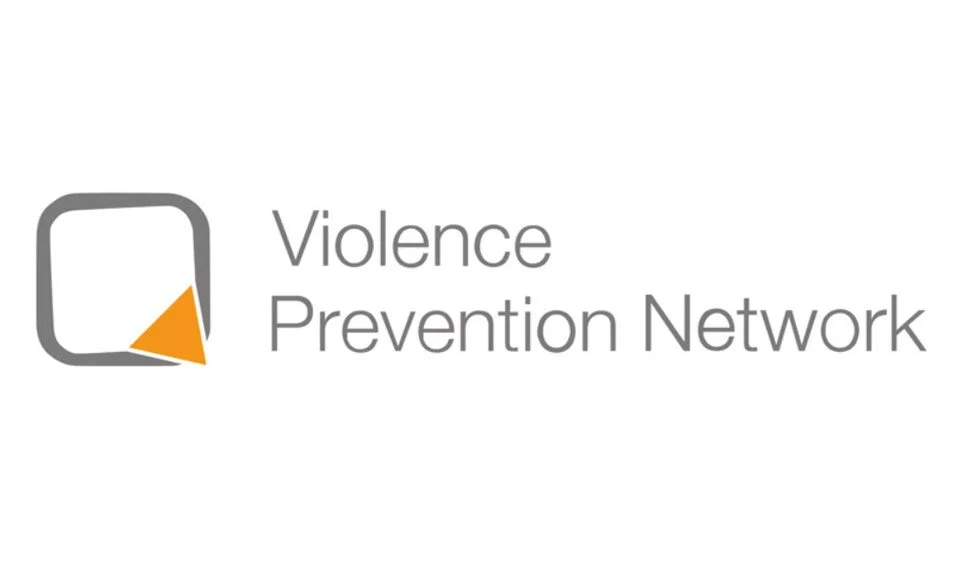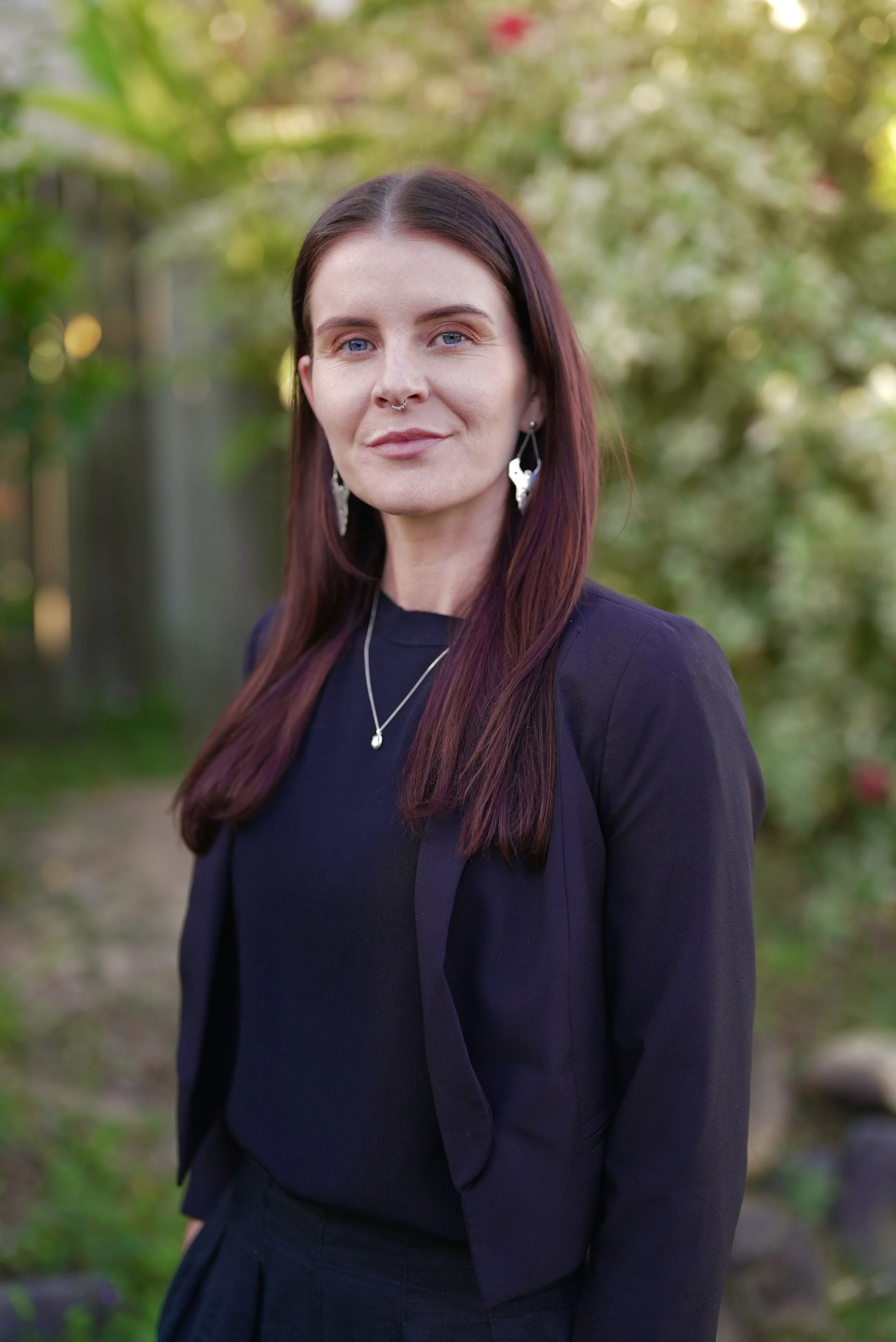AVERT Newsletter
December 2025
Co-Convenors’ Message
HAPPY HOLIDAYS FROM THE AVERT RESEARCH NETWORK!
This is the final newsletter of 2025 for AVERT. The second half of 2025 has been a busy time as we’ve continued to grow as a Network to deliver research and expertise for the public good. As always, it is gratifying to acknowledge and disseminate the work and achievements of such an active and impactful collection of researchers, who, through their evidence-based research, publications, commentary, and professional expertise and engagement, make a vital contribution to the effective countering of terrorism and violent extremism.
The recent horrific antisemitic terrorist attack on 14 December at Bondi Beach in Sydney, Australia, only underscores the need for up-to-date and evidence-based knowledge and expertise. The attackers’ apparent links with Islamic State and jihadist groups in Southeast Asia reinforce the importance of networks such as ours that connect experts from across diverse regions to draw on global expertise and knowledge. Our statement on the attack is available on the AVERT website (and a shorter version is also available on LinkedIn), and we encourage you to review it if you haven't had a chance to read it yet.
Indeed, throughout 2025, AVERT has continued to offer a range of excellent and fascinating presentations from Australian and international experts as part of our practitioner-focused webinar series. This year, we delivered 11 webinars on topics ranging from the current state of Jemaah Islamiyah to understanding the organisational survival of terrorist groups. As always, links to all these webinars can be found on the AVERT webpage.
The year also saw us manage and deliver significant research funding for Phase Two of the Home Affairs National Research Project, with the resulting series of funded research projects now well underway. In addition, AVERT members convened a roundtable discussion with the Independent National Security Legislation Monitor (INSLM), Mr Jake Blight, on the INSLM review concerning how Australia defines terrorism in the Criminal Code. Following this roundtable, AVERT Executive member Associate Professor Kieran Hardy led AVERT’s collective submission to the review; our submission (#31) can be found at the link listed under the INSLM news item below.
The signature event on the AVERT calendar – our annual international research symposium – was held once again to great acclaim in November. This year’s theme was “Signal or Noise? Navigating the Changing Nature of Violent Extremism Online”, presented in partnership with the VOX-Pol Research Network on online extremism and terrorism and the UK-based Terrorism and Social Media Conference (TASM). The Symposium was our biggest yet, with sell-out attendance and featuring more than 50 presentations, panels, roundtable discussions, and workshops delivered and attended by global researchers, practitioners, and representatives from community organisations and industry. An outstanding keynote address was delivered by Professor Cynthia Miller-Idriss, who heads the PERIL (Polarisation and Extremism Research and Innovation Lab) at American University in Washington, speaking on the intersections of violent misogyny and extremism drawn from her new book. Survey feedback shows that the symposium continues to be highly valued by practitioners and policy makers from across Australia as a space for knowledge exchange, exposure to international best practices, and networking. Links to the presentations and proceedings can be found at the AVERT YouTube channel. We'd like to thank everyone who attended and was involved in delivering the event, and in particular the students and HDR volunteers who helped the Symposium run as smoothly as possible.
Organisational Changes and New Appointments
2025 saw the Network undergo some organisational changes. Lydia Khalil decided to step back from her Co-Convenor role, while remaining active on our Steering and Executive Committees. We are deeply grateful for Lydia's exceptional leadership, vision, and commitment to AVERT's growth and impact over the years and delighted that she remains on the AVERT Executive Committee to continue her future involvement in the Network. Professor Michele Grossman, AVERT’s founding Convenor, was able to reprise her role to support the Network after Lydia stepped away, joining Julian as Co-Convenor. Throughout 2025, we were expertly supported by our wonderful and tireless Coordinator, Isel Ras, and also by Jordon Borg, who brings valuable energy and expertise to the team.
Finally, we've welcomed several new research members to AVERT, and we look forward to their contributions to our activities and research outputs in the year ahead.
Looking Ahead
We hope that, after a break over the Australian summer, 2026 will see AVERT continue to grow both in its membership and the value and impact it creates for Australian and global counterterrorism and countering violent extremism scholarship and best practice. We look forward to further strengthening the vital interaction and mutual learning between research scholars, practitioners, and policymakers in countering terrorism and violent extremism that has been a hallmark of AVERT’s focus and operations since its inception.
AVERT will be taking a few weeks off to rest and recharge after a challenging but very rewarding year. After the Network’s usual summer hiatus over December and January, we look forward to coming back refreshed and engaged in early February 2026 for another exciting year ahead. The entire AVERT team wishes you – wherever you are – all the best for the festive season and for a safe, healthy, and thriving new year!
Professors Julian Droogan and Michele Grossman AM
AVERT Co-Convenors
Michele Grossman AM
AVERT Co-convenor
Julian Droogan
AVERT Co-convenor
AVERT INSLM Submission
We’re pleased to share AVERT’s October 2025 submission to the Independent National Security Legislation Monitor (INSLM inquiry), which is reviewing whether Australia’s legal definition of terrorism remains fit for purpose more than two decades after 9/11 amid rapidly changing threats.
The INSLM considers whether Australia’s counter-terrorism laws are effective, necessary, proportionate, and consistent with fundamental rights.
The current INSL Monitor, Mr Jake Blight, a former Deputy Inspector-General of Intelligence and Security, recently launched an own-motion inquiry into Australia’s legal definition of a “terrorist act” under section 100.1 of the Criminal Code Act 1995. This definition is significant, as it determines the scope of Australia’s extensive counter-terrorism framework, which includes more than 100 federal laws and hundreds of related state and territory laws in areas such as transport and emergency management, disaster insurance, and critical infrastructure protection.
As part of that objective, members of AVERT’s Executive and Steering Committees recently met with Mr Blight and members of the INSLM team to discuss these issues and have made a written submission to the inquiry that sets out key considerations for the review, including core characteristics of terrorism, the roles of motive and ideology in distinguishing terrorism from other types of crime, the question of ‘religious’ motives for terrorism, the problem of mixed or unclear motives, and the overlaps between terrorism and hate crime.
You can visit the Inquiry homepage here.
You can find the AVERT and other submissions here.
You can find AVERT’s full submission here.
AVERT Research Network Code of Conduct
We are pleased to share that the AVERT Research Network Code of Conduct has been finalised and is now available on our website. This document outlines the core values and standards that guide our work, emphasising respectful engagement, academic integrity, inclusion, and ethical conduct across all AVERT activities and events.
The Code of Conduct reflects AVERT’s commitment to building a transparent, inclusive, and collaborative network of researchers, practitioners, and policymakers addressing violent extremism and radicalisation.
We especially thank our AVERT Executive Committee members for their leadership and dedication in developing this important document. You can view the Code of Conduct here.
AVERT International Research Symposium
The AVERT International Research Symposium 2025 took place from 24–26 November 2025 at Deakin Downtown in Melbourne.
This year’s Symposium was held in close partnership with the VOX-Pol Network of Excellence and the Terrorism and Social Media (TASM) Conference, bringing together academics, practitioners, policymakers, and industry experts from Australia and around the world. The Global Network on Extremism and Technology (GNET) generously sponsored the Symposium’s major networking reception on Day 2.
Anchored in the theme “Signal or Noise? Navigating the Changing Nature of Violent Extremism Online,” the Symposium explored how rapid technological change, cross-platform extremist activity, and increasingly hybrid online-offline behaviours are reshaping contemporary violent extremism. Across three days, keynote presentations, paper sessions, roundtables, and practitioner-led workshops examined emerging threats, analytical challenges, and innovative responses.
Recordings of Symposium sessions, where presenters have provided consent, have been uploaded to the AVERT website and the AVERT YouTube channel and are available to view here: https://www.avert.net.au/2025-recordings
New Members
New Research Members
Dr. Philip Pond
Melbourne University
Dr. Muhammad Akram
Independent Scholar
Dr. Kieran Lilly
University of Queensland
Professor Lee Jarvis
University of Adelaide
Dr. Maksim Markelov
University of Manchester
Dr. James Paterson
Lowy Institute
Dr. Peita Richards
Charles Sturt University
Dr. Angus Lindsay
New Zealand Police
AVERT Seminar and Webinar Series
The AVERT Seminar/Webinar series has featured important and timely research over the past few months.
June 2025
Africa and the New Geopolitics: Violent Extremism, Conflict, and Regional Security – Roundtable Discussion, with Dr. Hassan Khannenje
On 19 June 2025, the AVERT Research Network and Macquarie University co-hosted a timely and thought-provoking roundtable with Dr Hassan Khannenje, Director of the Horn International Institute for Strategic Studies (Kenya). Held at Macquarie University’s City Campus in Sydney, the event brought together researchers, policymakers, and practitioners to engage with Dr Khannenje’s expert insights on Africa’s evolving geopolitical landscape.
In his keynote, Dr Khannenje examined regional security dynamics in East Africa, highlighting current trends in violent extremism, the drivers of conflict, and the importance of resilience-based, locally informed responses. He also explored broader geopolitical developments, including strategic competition among global powers, the implications of the Russo-Ukrainian war, and Africa’s growing agency in shaping international partnerships, particularly in relation to countries such as Kenya. Special attention was given to Africa’s increasing ability to define its own diplomatic relationships, especially with Western nations, amid shifting global alliances and emerging regional interests. The session concluded with a dynamic roundtable discussion and networking opportunity.
We thank the Department of Foreign Affairs and Trade for facilitating Dr Khannenje’s visit to Australia.
Panel Discussion: Rethinking religion and radicalisation: The role(s) of religion in far-right extremist movements, with Dr Alejandro Beutel, Dr Arie Perliger, Dr. Vivian Gerrand, Professor Michele Grossman, and Lydia Khalil
While considerable attention has been paid to Islam in discussions of religion and terrorism, far less scrutiny has been directed at how extreme-right movements invoke religion, through symbols, narratives, and beliefs, to advance their agendas. This panel explored what Alejandro Beutel and Arie Perliger (2025) describe as “the nexus of religious extremism and far-right militancy,” shedding light on an underexamined yet increasingly relevant dimension of violent extremism. Understanding this intersection is critical for shaping effective countering violent extremism (CVE) policies and programs. Featuring contributors to Rethinking Religion and Radicalization: Terrorism and Violence Twenty Years After 9/11 (Bloomsbury, 2025), this panel delved into a range of topics, including the role of Orthodox Christianity in far-right ideologies, the emergence of ‘conspirituality’ and militant wellness, and the strategic deployment of religious discourse by radical-right movements in the United States and Israel.
July 2025
Connecting P/CVE Practice and Prevention: Introducing INDEX and Its Australian Rollout, with the Violence Prevention Network (VPN) (webinar not recorded)
This webinar introduced participants to the work of the Violence Prevention Network (VPN), an organisation based in Germany with extensive experience in preventing and countering violent extremism through practitioner-led interventions and cross-sector collaboration.
The presentation focused on INDEX, a global platform developed by VPN to support structured case consultation and foster practitioner engagement across borders. It outlined the platform’s goals, structure, and current activities, and offered participants the opportunity to connect directly with the initiative through membership and ongoing support.
The session also highlighted the rollout of INDEX in Australia, which is being implemented through the Diversions Australia project. This initiative pilots a new referral pathway that connects CVE programs with relevant cases and equips participating practitioners with access to INDEX tools and training. The training was scheduled for delivery in August 2025 and offers a concrete opportunity for engagement.
From Online Risk to Offline Safety: A Framework for Building Online Violent Extremism Prevention, with Moonshot (webinar not recorded)
The digital age has transformed how individuals radicalise and mobilise to violence, yet violence prevention systems continue to operate largely offline. This webinar introduced a new public-health-based framework for digital violence prevention, developed through a decade of innovation and international collaboration.
Drawing on implementation examples from Canada, the United States, and New Zealand, the presentation outlined a model that builds capacity across three key areas: online awareness and referral mechanisms to reach at-risk individuals and concerned bystanders; virtual assessment and triage that ensures both accessibility and clinical integrity; and long-term intervention and case management through multidisciplinary and multimodal support.
The webinar concluded with ten evidence-based recommendations for online prevention, providing practitioners and policymakers with tools to address current threats and prepare for the evolving digital landscape.
August 2025
The Aesthetic Politics of Far-right Environmentalism, with Dr. Imogen Richards
This webinar introduced a forthcoming book titled The Aesthetic Politics of Far-Right Environmentalism. The book offers a new way to understand how far-right groups around the world use art, imagery, and cultural symbols to spread their political ideas, especially when it comes to environmental issues. It shows how these groups take advantage of real ecological crises to promote an “us versus them” mindset, using powerful visuals and emotionally charged messages to influence how people see urgent social and environmental problems. The presentation drew on theories by thinkers like Walter Benjamin and Jacques Rancière to explain how these visual strategies help make extreme ideas seem more acceptable, especially to audiences online. The presentation included case studies that focus on visual content shared across both mainstream and alternative tech platforms. These include materials produced by European far-right political parties, affiliated groups, and online white supremacist communities, ranging from so-called “tradlife” influencers to the creators of stylised extremist media like fashwave and schizowave.
September 2025
TPublic Release of the Profiles of Individual Radicalisation in Australia (PIRA) Database, with Dr. Emma Belton
This webinar presented the Profiles of Individual Radicalisation in Australia (PIRA) database, which records information on individuals in Australia who have radicalised to extremism between 1985 and 2023. The database covers a range of ideologies, including Islamist, far-right, far-left, and single-issue extremism. Using open-source information, PIRA compiles data across 123 variables relating to demographics, personal backgrounds, group dynamics, and contextual factors. Individuals are categorised as either violent or non-violent based on their actions, following a framework closely aligned with the Profiles of Individual Radicalisation in the United States (PIRUS) database. Established to support research, the open-access version contains de-identified information on 261 extremists, both violent and non-violent, with individuals coded against 114 variables. This webinar assisted researchers, policymakers, and practitioners in better understanding pathways to violent extremism and identifying background characteristics and risk factors linked to radicalisation.
Exploring the Religious Dimensions of American Far-Right Extremist Discourse, with Dr. Arie Perliger
Recent research has shown that violent far-right groups are increasingly using Christian language, symbols, and stories. This suggests that religion is being used to help motivate and justify their actions. In this webinar, Dr. Arie Perliger explored how the core beliefs of these groups influence the way far-right groups use Christian ideas and messages. To explain this, Dr. Perliger studied over 10,000 online posts and messages from six violent far-right communities. Dr. Perliger then analyzed this material to understand how these groups use Christian narratives to build their moral arguments, define who belongs and who doesn’t, promote their views of crisis, and justify violence.
October 2025
The Bureaucracy of Violence: Organisational Survival and the Challenge of Disengagement, with Dr. Nell Bennett
Why do some terrorist groups keep going long after they’ve lost public support or any real chance of success? This webinar drew on new research to offer a fresh perspective: many violent extremist groups act less like movements with a cause, and more like organisations trying to survive. Instead of focusing only on beliefs or radicalisation, this session looked at how internal structures, routines and self-preservation can drive group behaviour over time. It used ideas from organisational studies to explain how extremist groups can become stuck in patterns of violence, even when the original goal no longer makes sense. For practitioners, this matters. If we want to design better counter-terrorism or disengagement strategies, we need to understand the internal workings of these groups: how decisions are made, how leaders hold power and how the group stays together. This is especially important in long-running or fragmented conflicts, where defeating an ideology isn’t enough. The session offered a new way of thinking about how extremist groups operate and why they can be so hard to shut down.
December 2025
Education in Christian Fundamentalism: Current Developments and Challenges for Civic Education, with Rahel Kellich
This webinar explored how upbringing and socialisation within Christian fundamentalist communities can influence the educational and social development of children and adolescents. While research on radicalisation has often focused on Islamist contexts, the impact of Christian fundamentalism—particularly in Europe—has received far less attention. Using Germany as an example, this presentation outlines key features of contemporary Christian fundamentalist groups and examines how their forms of authority and belief systems—such as exclusive truth claims, anti-pluralist worldviews, and binary thinking—shape young people’s views on autonomy, civic participation, and diversity. The webinar also highlights the growing international reach of Christian fundamentalist and evangelical networks, including their online presence through “Christfluencers” and algorithmic environments that circulate fundamentalist ideas across digital spaces. These examples show how such worldviews adapt to modern media while maintaining core ideological frameworks.
By comparing these developments with the aims of civic education, this presentation invites discussion on how educators can strengthen democratic values, autonomy, and critical reflection among young people.
Member News
Publications
AVERT Research Members are active researchers in the field of preventing and countering terrorism and violent extremism. Read some of their latest publications here.
Gabriel O. Adebayo
Adebayo, G. (2025). Citizenship, Religion and Education in View of Human Security and Radicalization Issues in Finland and Europe: An Analysis of Public Policies between Realist Assumptions and Constructivist Perspectives. PhD dissertation, University of Helsinki. Read
Joel Busher and Julia Ebner
Busher, J., Ebner, J., Hacsek, Z., Harris, G., & Macklin, G. (2025). The relational dynamics of violence escalation and inhibition during far-right protest waves. American Behavioural Scientist. Read
Julian Droogan
Lutz, B., Tan, A., and Droogan, J. (2025). Global Terrorism. Routledge. Read
Gleeson, K., and Droogan, J. (2025). A secular society with segments of religious power: Ex-religious Australians’ views of religion and state, Religion, State and Society, 53(5), 482-504. Read
Miotto, N., and Droogan, J. (2025). Stand against the wiles of the Devil: Interpreting QAnon as a pseudo-Christian extremist movement, Critical Sociology, 51(3), 503-526. Read
Nuraniyah, N., Droogan, J., and Williams, J. (2025). Fake tombs and false prophets: China's digital propaganda in Indonesia, Australian Outlook, 21 November. Read
Nuraniyah, N., Williams, J., & Droogan, J. (2025). Indonesia targeted in Rafale fighter jet disinformation. The Interpreter, 9 July. Read
Tian, L., Booth, E., Bailo, F., Droogan, J., & Rizoiu, M.-A. (2025). Before it's too late: A state space model for the early prediction of misinformation and disinformation engagement. In: WWW '25: Proceedings of the ACM Web Conference 2025. Association for Computing Machinery, 5244-5254. Read
Williams, J., Nuraniyah, N., Borg, J., & Droogan, J. (2025). How Burkina Faso's strongman became the Indo-Pacific's unlikely hero – and other tales of disinformation. The Interpreter, 7 August. Read
Williams, J., Nuraniyah, N., & Droogan, J. (2025). Foreign interference and Indonesia’s buzzer networks. The Interpreter, 1 December. Read
Amparo Pamela Fabe
Fabe, A. (2024). The Philippines and the South China Sea dispute: The 2016 Arbitral Tribunal and its Implications. La Trobe Asia Brief, no. 12. Read
Edwards, S., Fabe, A., and Febrica, S. (2025). Ocean Dependent Communities in Southeast Asia’s Maritime Security Governance: Reflections and Actionable Pathways. YCAPS Policy Brief/Policy Paper. Read
Agastia, I., Cheeppensook, K., Edwards, S., and Fabe, A. (2024). Coordinating for maritime security: Southeast Asia’s evolving Institutions. Blue Security: A Maritime Affairs Series, no. 6 (May). Read
Fabe, A. (2025). Ironclad commitment: the US–Philippine defense alliance. In Siekiera, J. (ed.) Evolution on Demand: The Changing Roles of the U.S. Marine Corps in Twenty-First Century Conflicts and Beyond. Marine Corps University Press. Read
Fabe, A., and Toledo, J. (2025). Irregular warfare lessons learned from Operation Pacific Eagle–Philippines. In Siekiera J (ed) International Law and Security in Indo-Pacific. Routledge. Read
Gerard Gill
Gill, G. (2025). Meaning through Its opposite: Significance quest theory and nihilistic violent extremism. GNET Insights. Read
Gill, G. (2025). The hide-and-seek champion: Conspiracist reactions to the Porepunkah shootings.’ VOX-Pol Commentaries. Read
Michele Grossman
Grossman, M., and Hellyer, H. (Eds). (2025). Rethinking Religion and Radicalization: Terrorism and Violence Twenty Years After 9/11. Bloomsbury. Read
Grossman, M., and Hellyer, H. (2025). Remapping the terrain of religion, radicalization and extremist violence, in M. Grossman and H. Hellyer (Eds), Rethinking Religion and Radicalization: Terrorism and Violence Twenty Years After 9/11. Bloomsbury, 3-16. Read
Grossman, M. (2025). The language game: The relationship between radicalization and extremism’, in R. Peels and J. Horgan (Eds), Conceptualizing Extreme Beliefs and Behaviors: Definitions and Relations. Oxford University Press, 185-205. Read
Kieren Lilly
Lilly, K., Kimberley, C., Bertenshaw, Z., Bahamondes, J., Sibley, C., and Osborne, D. (2025). Rise of the alt-white: Examining perceptions of reverse racial and gender discrimination among White men from 2014 to 2022, British Journal of Social Psychology, 64(4). Read
Osborne, D., Lilly, K., Kunst, J., Obaidi, M., and van den Bos, K. (2025). The role of relative deprivation in the process of radicalization into violent extremism, in M. Obaidi M and J. Kunst (Eds), The Cambridge Handbook of the Psychology of Violent Extremism. Cambridge University Press, 323–344. Read
Winnifred Louis
Louis, W., Chonu, G., Minto, K., and Wibisono, S. (2025). The Psychology of System Change and Resistance to Change: A New Psychology of Intergroup Relations. Cambridge University Press. Read
Kristina Murphy, Keiran Hardy, Adrian Cherney
Murphy, K., Hardy. K., Cherney, A., Sas, S. and Shakespeare, E. (2025) ‘Linking conspiracy beliefs with anti-government extremism: mitigating the threat with procedurally just governance’, Terrorism and Political Violence. Read
Matteo Vergani
Vergani, M., Betts, J., Perry, B., Chermak, S., Freilich, J., Scrivens, R., and Link, R. (2025). Approaches to defining the “hate element” of a behavior: A data-driven typology, Crime & Delinquency. Read
Vergani, M., Giovannetti, A., Ng, S., Lim, C., Zhang, J., and Scott, R. (2025), Synergies between “hard” and “soft” interventions against online extremism: an agent based simulation and cost–benefit analysis, Terrorism and Political Violence, 1–19. Read
Nuri W Veronika
Veronika, N., and Afrianty, D. (2025). Special Issue Editorial: Gender and Security in the Indo-Pacific, Journal of Policing, Intelligence and Counter Terrorism, 20(4), 425–433. Read
Veronika, N. (2025). Violent extremism, gender and power: women’s experience under Kahar Muzakar’s Darul Islam, Journal of Policing, Intelligence and Counter Terrorism, 20(4), 506–517. Read
Veronika, N.W. and Afrianty, D. (2025) ‘Special Issue Editorial: gender and security in the Indo-Pacific’, Journal of Policing, Intelligence and Counter Terrorism, 20(4), pp. 425–433. Read
Veronika, N.W. (2025) ‘Violent extremism, gender and power: women’s experience under Kahar Muzakar’s Darul Islam’, Journal of Policing, Intelligence and Counter Terrorism, 20(4), pp. 506–517. Read
Awards and recognition
AVERT Members are some of the top researchers in their field. AVERT is proud to share the awards and recognition they receive.
Gabriel Omotosho Adebayo
Doctor of Philosophy (PhD) award by the University of Helsinki in September 2025.
Joel Busher
Recently appointed Coordinator of the Special Interest Group on Countering Emerging Threats, a network that supports peer-to-peer learning and knowledge exchange across local authorities in the UK on issues related to extremism and cohesion.
Amparo Pamela Fabe
Appointed Maritime Security Fellows for 2025-2026 by the Maritime Research Center in Pune, India. I will research on underwater domain awareness and undersea technologies.
Mariam Farida, Michele Grossman and Lydia Khalil
Grant awarded: 2025-26. Symposium on the role of religious and spiritual mentoring in CVE. NSW Premier’s Department Research Grant (AUD $150,000).
John Horgan
Received the Distinguished Scholar Award from the American Society of Criminology's Division of Terrorism & Bias Crime (November 2025).
Kristina Murphy
Named Australia’s Research Field Leader in Criminology, Criminal Law and policing in The Australian’s Research Magazine, within a field of Australia’s top 250 researchers for 2026
Kristina Murphy, Susan Carland, and Matteo Vergani
Grant awarded: 2026-2028. Tracking Islamophobia and its impacts on Australian Muslims lives. Chief investigators: Susan Carland; Kerry O'Brien; Matteo Vergani; Zarina Vakhitova; Nora Amath. ARC Linkage (AUD $537,437).
Opportunities
“We are seeking submissions to the European Association of Social Psychology pre-conference, "The psychology of reaction: Exploring reactionary social movements through social psychological frameworks". Reactionary social movements have gained momentum globally in recent years, emerging in opposition to progressive social change and seeking to restore traditional values, identities, and power structures. These include far-right, anti-immigration and anti-gender movements that centre nationalism, traditionalism and white supremacy, and resistance to feminist progress, and LGBTIQ+ rights (to name a few). This preconference will bring together researchers interested in understanding the emergence, appeal, and persistence of reactionary movements, as well as strategies to counter their influence.
Date and location: 30th June 2026, 9am-5:30pm, Strasbourg, France.
Deadline for submissions: 5th January 2026
We welcome submissions for 15-minute talks (empirical or theoretical research) and 5-minute blitz presentations (work in progress, emerging theoretical or methodological developments).
Abstracts (up to 1,500 characters including spaces) can be submitted via this link: https://uniofqueensland.syd1.qualtrics.com/jfe/form/SV_6ffTv4U20fwZGjc
Please note that each participant may register for only one pre-conference (fee: €60) and must also register for the General Meeting (see fee information here).
We particularly encourage submissions from scholars in Central and Eastern Europe, North and Latin America, and other regions where reactionary social movements are active but under-examined. We also welcome contributions from early-career researchers and scholars from historically marginalised groups, and the use of diverse methods and theoretical approaches.”
Get in touch
Please feel free to get in touch with us if you have any questions about AVERT’s activities. You can reach us at adi-avert@deakin.edu.au






